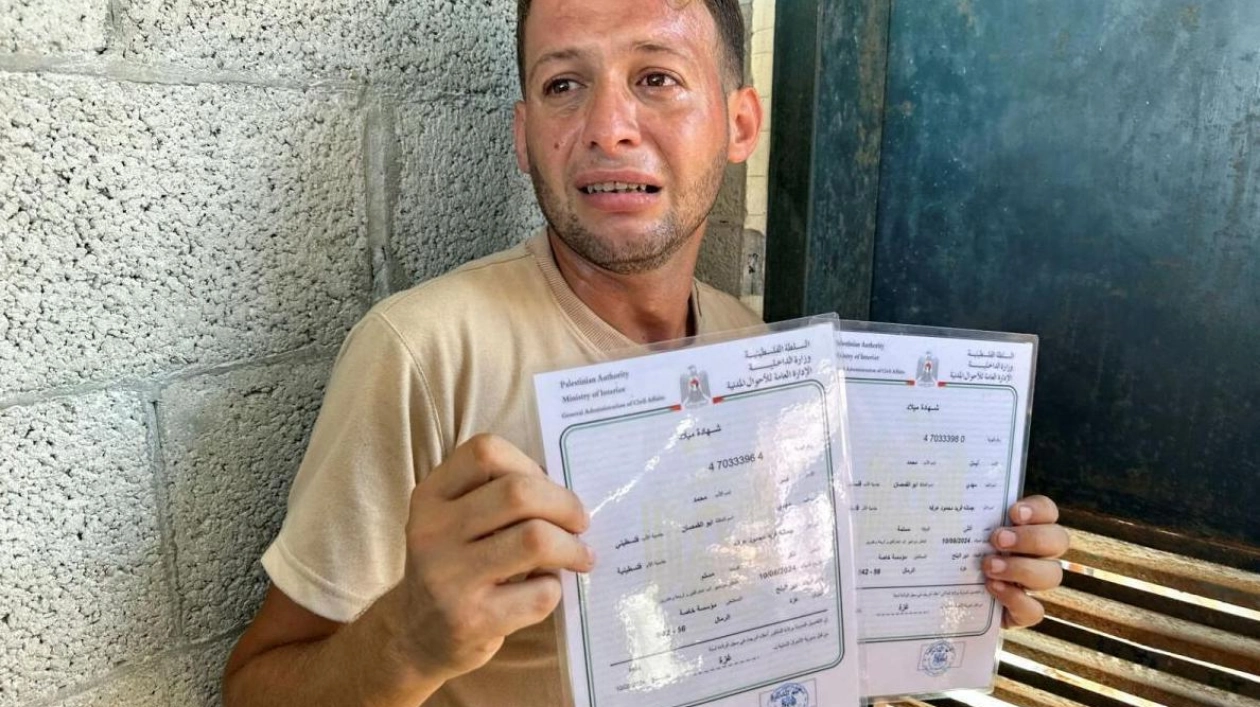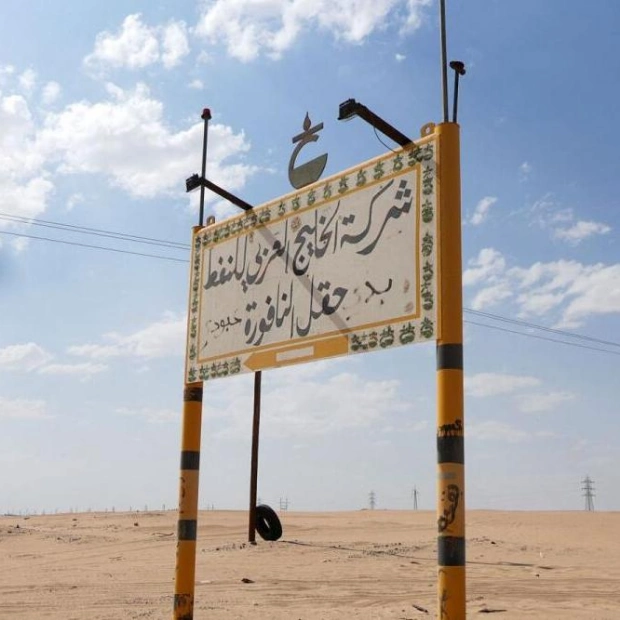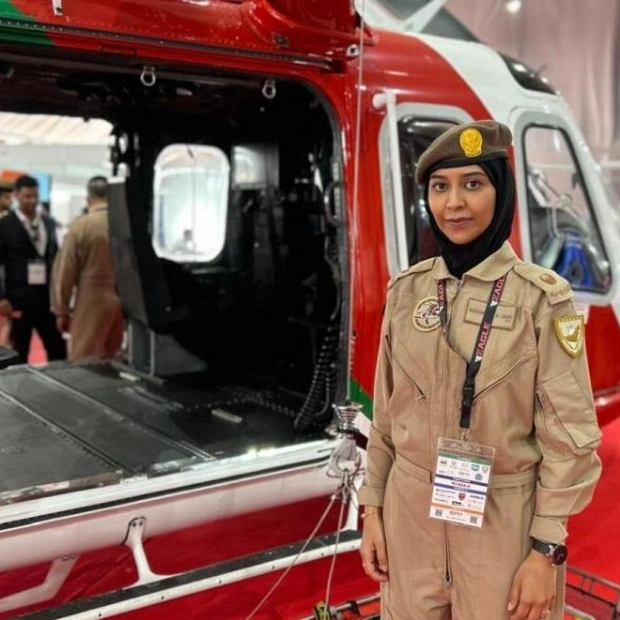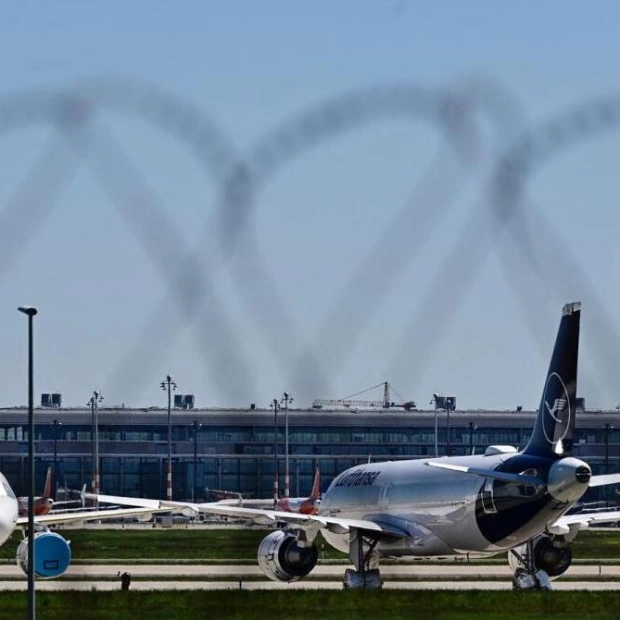Mohammed Abu Al Qumsan had just collected birth certificates for his newborn twins when he learned that they, along with his wife and her mother, had been killed by an Israeli strike on the Gaza apartment where they were taking shelter. He held up the laminated documents, meant to symbolize a rare moment of joy in the besieged Palestinian territory, as he was comforted by a man while he sobbed at the morgue where their bodies were brought.
"My wife is gone, my two babies and my mother-in-law. I was informed it's a tank shell on the apartment they were in, in a house we were displaced to," said Abu Al Qumsan, 31, recounting the heart-wrenching phone call from neighbors. He and others carried his son and daughter, Asser and Ayssel, who were draped in white shrouds, a frequent sight in Gaza, where Israel's land and air campaign has forced hundreds of thousands of people to constantly seek refuge.
A man prayed as the bodies were placed in the back of a car, and a crowd gathered, with people observing from the balcony of one of Gaza's strained emergency rooms at the Al Aqsa Martyrs Hospital in Deir Al Balah in the central coastal strip. Ten months into the Gaza war, air strikes, artillery shells, and severe shortages of medicine, food, and clean water have left one of the world's most densely populated areas in dire straits.
"Today, it was recorded in history that the occupation army targets newborn children who are just four days old, twins along with their mother and grandmother," said hospital doctor Khalil Al Daqran. Israel claims it makes every effort to avoid civilian casualties and accuses Hamas of using human shields, allegations the militants reject. The Palestinian militant group initiated the conflict with a cross-border raid on Israel on October 7, killing 1,200 people and taking over 250 hostage, according to Israeli figures. Israel retaliated with an offensive that has claimed nearly 40,000 lives and injured more than 92,000, according to Israeli figures, and has left much of Gaza in ruins.






